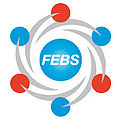From Bioblast
MiPschool Cambridge UK 2012
|
Cambridge UK, 2012 Jul 07-13. 5th MiPschool on Mitochondrial Physiology. |
FEBS (2012-07-07) MitoGlobal
Abstract: 5th MiPschool on Mitochondrial Physiology, 2012 Jul 09-13, Cambridge, UK.
- University of Cambridge, UK
- A 5 day FEBS Workshop on Mitochondria, consisting of lectures, posters and discussion, for researchers, medics, post-docs and research students.
- New: Final Programme - Poster presentations
- Organizing Committee
- Erich Gnaiger, Chairman MiPsociety, Medical University of Innsbruck, Austria
- Kathrin Renner, General Secretary MiPsociety, University of Regensburg, Germany
- Guy Brown, University of Cambridge, United Kingdom
- Michael Murphy, MRC Mitochondrial Biology Unit, Cambridge, United Kingdom
- Andrew Murray, University of Cambridge, United Kingdom
- Charles Hoppel, Case Western Reserve University School of Medicine, USA
- Steven Hand, Louisiana State University, Baton Rouge, USA
- Vilma Borutaite, Kaunas University of Medicine, Lithuania
- Rodrigue Rossignol, Université Victor Segalen-Bordeaux, France
Programme
- view the final programme here
MiPsummer Lecturers
- Sir John Walker, MRC Mitochondrial Biology Unit, Wellcome Trust/MRC Building, Hills Road, Cambridge CB2 0XY, UK. walker@mrc-mbu.cam.ac.uk Mitochondrial ATP synthesis
- Edmund Kunji, Dr., MRC Mitochondrial Biology Unit, Wellcome Trust/MRC Building, Hills Road, Cambridge CB2 0XY, UK. edmund.kunji@mrc-mbu.cam.ac.uk Mitochondrial carriers
- Antonella Spinozzola, Dr., MRC Mitochondrial Biology Unit, Wellcome Trust/MRC Building, Hills Road, Cambridge CB2 0XY, UK. as1@mrc-mbu.cam.ac.uk Mitochondrial biogenesis
- Michael Murphy, Dr, MRC Mitochondrial Biology Unit, Wellcome Trust/MRC Building, Hills Road, Cambridge CB2 0XY, UK. mpm@mrc-mbu.cam.ac.uk Mitochondrial ROS and medicine
- Michael Duchen, Prof., Department of Physiology, University College London, Gower Street WC1E 6BT, London, UK. m.duchen@ucl.ac.uk Mitochondrial pathology
- Erich Gnaiger, Prof., D. Swarovski Research Laboratory, Medical University Innsbruck, Anichstr. 35, A-6020 Innsbruck, Austria; Erich.Gnaiger@i-med.ac.at Mitochondrial respiratory physiology - Mitochondrial competence
- Steven Hand, Prof., Department of Biological Sciences, Louisiana State University, Baton Rouge, LA 70803, USA; shand@lsu.edu Comparative physiology of mitochondria
- Charles Hoppel, Prof, Center for Mitochondrial Diseases, Case Western Reserve University School of Medicine, Cleveland, OH 44106-4981, USA. clh5@cwru.edu Diagnosing mitochondrial disease
- Aviva Tolkovsky, Dr., Cambridge Centre for Brain Repair, University of Cambridge, Forvie Site, Cambridge CB20PY, UK amt@mole.bio.cam.ac.uk Mitochondria, autophagy & neurodegeneration.
- Vilma Borutaite, Prof., Institute for Biomedical Research, Lithuanian University of Health Sciences, Eiveniu St, 3007 Kaunas LT; vilbor@vector.kmu.lt Mitochondria in Heart & Brain pathology
- Rodrigue Rossignol, Dr., INSERM-EMI 9929 Université Victor Segalen-Bordeaux 2 146, rue Léo Saignat 33076 Bordeaux Cedex, FR; rossig@u-bordeaux2.fr Mitochondrial dynamics and cancer
- Andrew Murray, Dr., Dept of Physiology, Development & Neuroscience, University of Cambridge, UK. ajm267@cam.ac.uk Mitochondrial adaptations to hypoxia, altitude and development
- Kathrin Renner, Dr., St.-Georgen-Platz 6, 93047 Regensburg, DE; kathrin.renner-sattler@klinik.uni-regensburg.de Measuring cellular respiration and membrane potential
- Bernard Korzeniewski, Prof., Faculty of Biochemistry, Biophysics and Biotechnology Jagiellonian University, 30-387 Krakow, Poland, e-mail: benio@mol.uj.edu.pl, Mitochondrial modelling.
- Leonid Sazanov, MRC Mitochondrial Biology Unit, Wellcome Trust/MRC Building, Hills Road, Cambridge CB2 0XY, UK. leo.sazanov@mrc-mbu.cam.ac.uk Mitochondrial respiratory chain
- Guy Brown, Dr, Department of Biochemistry, University of Cambridge, Cambridge CB2 1QW, UK; gcb@mole.bio.cam.ac.uk Mitochondria in cell death and degenerative disease
MiPsummer Registration and Abstracts
- FEBS workshop & MiPsummer 2012
- Participants should have at least the educational level of a PhD student, and should submit an abstract based on their current research.
- All participants will have the opportunity to present their work either as a poster or a talk (selected from submitted abstracts).
Registration closed
- Registration fee is £550 or £700, covering registration, accommodation and all meals.
- £550 is for a single (student) room with shared bathroom facilities in Trinity Hall.
- £700 is for a single room with ensuite facilities.
- Registration closed.
- Registration: Fully booked.
- Once you have registered submit an abstract.
MiP2012 Abstract Format
- Abstract deadline: 2012-May-31
- Style: See abstracts on the MiP website for style – MiP2005 Abstracts.
- Format: Maximum 1 page, single spaced, including title, authors, affiliations, text and 2-6 references.
- Title: Use bold type, not capitalized. Verdana, 12 point
- Authors: Presenting author with full name (first name spelled out), other authors with initials only. Numbers in superscript after each author should indicate the affiliations.
- Addresses: Numbers in superscript are placed at the beginning of the address for indicating the affiliation. The e-mail address of the presenting author should be given at the end of all addresses.
- Main text: Verdana, 11 point. Structured into paragraphs without headers. The standard structure of abstracts should be followed.
- Figure: No figures allowed.
- References in the text are given by numbers in brackets. Full references should be numbered and include all authors (family name and initials without punctuation), followed by the year of publication in parentheses, full title, journal name abbreviated with punctuation (italic), volume number followed by a colon, and first and last pages.
- Submit abstract as attached WORD.doc file to kathrin.renner-sattler@klinik.uni-regensburg.de
- And within the email indicate:
- 1. Whether you have registered for the meeting.
- 2. Whether you want to present your work as a poster or as a talk.
- 3. Whether you want to be considered for a FEBS YTF (Youth Travel Funds).
- If you have any problems, email kathrin.renner-sattler@klinik.uni-regensburg.de
MiPsummer Concept
- Mitochondrial research has undergone three distinct phases over the last 50 years.
- Explosive growth’ in the 1960’s, when the central role of mitochondria in energy transduction was elucidated;
- Stasis’ from 1970 to 2000;
- Renaissance’ since 2000, due to a diverse series of discoveries revealing central roles for mitochondria in cell death, disease pathology, and cellular function, as well as molecular bioenergetics.
- This renaissance has brought a whole new generation of researchers and PhD students into mitochondrial biology from many different fields and backgrounds. However, this diversity of backgrounds results in early-stage researchers who have insufficient training in the basics and context of their field:
- Medical and genetic researchers who have no knowledge of how mitochondria function,
- Cell biologists who have no knowledge of basic bioenergetic concepts,
- Molecular biologists who don’t know what their molecules do and their roles in pathology,
- Researchers everywhere who do not know how to measure mitochondrial function and dysfunction.
- The aim of the FEBS Workshop "MiPsummer 2012" is to initiate and extend a network of teachers in mitochondrial physiology, and train early stage researchers in both the basics and cutting edge science of mitochondria. The Workshop will reflect the new diversity and dynamism of mitochondrial research, and bring together experts working on mitochondria in different fields, covering aspects from basic science to clinical orientation, from the molecular level to the patient. There will be an emphasis on understanding of the basic concepts and new methodological developments in measuring mitochondrial function and dysfunction.
- Topics will include:
- Introduction to mitochondria: basic concepts.
- Mitochondrial bioenergetics: respiratory electron transfer-pathway, ATP synthesis, carriers, protonmotive force.
- Mitochondrial biogenesis: mtDNA, nucleoids, biogenesis, exercise/ training.
- Mitochondria at the extremes: hypoxia, altitude, exercise, metabolic depression.
- Mitochondrial pathology: ROS, mtDNA mutations, proton leak and cell death.
- Mitochondria in cancer and cardiovascular disease.
- Mitochondria in aging and neurodegeneration.
- Mitochondrial methods: Visualisation, morphology, quantitation.
- The population is aging rapidly, and age-related disease and healthy aging are one of the greatest challenges facing the world in the 21st century. To take just one example: 25% of UK citizens currently get dementia before they die, which costs the UK economy €27 billion per year, but because of the ageing population we can expect almost 50% of the population to get dementia before they die by 2050, unless we reduce age-related prevalence of dementia. Over the last 10-20 years, it has been found that mitochondria are central to cell death, ageing and age-related diseases. However, the molecular mechanisms are still unclear, so that few therapies and applications have yet emerged from this understanding. Mitochondria are an intracellular organelle, descended from bacteria, but found in virtually every cell in our body, and producing virtually all of our energy. However, mitochondrial function declines with age, and may contribute to the aging processes and age-related diseases. For example:
- Changes in mitochondria have a role in cancer development and progression.
- Mitochondrial dysfunction mediates heart infarction, heart failure and stroke.
- Mitochondrial changes mediate the vascular pathology of diabetes, and mitochondrial insufficiency may initiate type II diabetes.
- Mitochondrial dysfunction has been deeply implicated in neurodegenerative diseases.
- If we are to convert this outline understanding of the roles of mitochondria in ageing and age-related disease into useable knowledge and therapies we urgently need to train more early-stage researchers in this multi-disciplinary area.
- The FEBS Workshop is organized as a Summer School on Mitochondrial Biochemistry, Physiology & Pathology in cooperation by
- The Mitochondrial Physiology Society www.mitophysiology.org: MiPs is an international society run by and for mitochondrial researchers, facilitating mitochondrial research by organising MiPsummer Schools for early stage researchers and conferences for more senior researchers. The Society has extensive experience of organising Summer Schools (e.g. 2007 & 2008 Schröcken, Austria; 2009 Baton Rouge, USA; 2010 Druskininkai. Lithuania) of the type proposed here, and will be involved in the planning, organisation and administration of MiPsummer 2012.
- The University of Cambridge www.cam.ac.uk is one the oldest and best Universities in the world, located in a small and beautiful city with extensive conference facilities, and crucially the local availability of distinguished researchers working on mitochondria.
- The Medical Research Council’s MRC Mitochondrial Biology Unit in Cambridge www.mrc-mbu.cam.ac.uk, headed by Sir John Walker, is one of premier institutes in the world working on mitochondria and has a large number of mitochondrial researchers with extensive research facilities. The Unit will be involved in organising the MiPsummer School, and students will visit the Unit for lectures and practical demonstrations.
- The MiPsummer School is a lecture course with a practical emphasis. There will be demonstrations of some important methods and techniques, including respirometry and measurement of mitochondrial membrane potential. There will also be a tour of laboratories at the MRC Mitochondrial Biology Unit, followed by the chance for students to quiz practitioners. Some of the local lecturers will give one lecture and only be present at the course for one day, while most of the non-local lecturers will give two talks, one basic and one based on current research, and will be around for most of the course, acting as tutors. As with all MiPsummer Schools there will be an emphasis on interaction between students and lecturers. Students will have to present a poster in a poster session, and at least half will give a short talk based on their poster. There will be extensive question and answer sessions to discuss student understanding and research problems.
Deadline for FEBS Youth travel funds applications: 1 April 2012
- With the support of FEBS (FEBS Youth Travel Funds) we are able to support a maximum of 15 students (12 for participants coming from European countries, 3 for students from non-European countries). For those young scientists receiving a FEBS Youth Travel Grant (PhD students or young scientists having obtained their PhD degree not longer than five years ago), most of travel costs and the whole registration fee including accommodation and full board is covered by FEBS.
- Applicants should:
- either be registered as a student at an institution of higher learning in a country where there is a FEBS Constituent Society or be within five years of having completed a PhD thesis.
- must be a member of a national FEBS Constituent Society
- not have received a grant from the Youth travel fund to attend an Advanced Course in the current year.
- Application
- Youth Travel Grants applications should include (i) a title, (ii) abstract (see Abstracts), (iii)CV, (iv) letter of recommendation by supervisor.
- Deadline for FEBS YTF applications: 1 April 2012
Labels:
ORO, 2012







